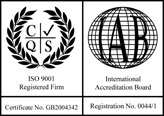
7 Steps For Starting A Catering Business
7 Steps For Starting A Catering Business
If you have a passion for cooking and a desire to provide a great service, you could perhaps consider starting your own catering business.
There are a wide range of ways to get started, whether you are catering for specific events, offering pop-up dining experiences, acting as a personal chef or anything in between. Below are seven steps designed to help you get started on this exciting journey.
1) Find Your Niche
Catering is a competitive marketplace. Consider what you offer that sets you apart from other businesses, and emphasise it.
Ideally, it should also include something you are passionate about and that relates to your personal story — whether that is a cuisine you love, your area of expertise, or a cause you support such as environmental awareness, or plant-based living.
Also, consider not just what your product is, but the specific ways you would like to serve your customer. Do you want to emphasise affordability, choice, the overall experience, or perhaps convenience? Once you’ve decided, think about who your ideal customer is.
Knowing these things will help you to refine your niche, serve the customer, and develop the best ways to progress your business.
2) Purchase Equipment
Consider the size of your catering business and what equipment you will need most. This will include — but is not limited to — large items such as ovens and dishwashers. You should also consider whether you will be providing things such as your own cutlery and travel containers.
What you need to get started will, of course, depend upon the type of catering business you want to start. Many new business owners save money by investing in refurbished catering equipment, such as our options at Caterquip, which have all been restored to a professional standard.
Consider refurbished options to keep costs down but still achieve the best results.
3) Find Collaborators
Depending on the type of catering business you are creating, it may also be important to establish relationships with vendors and collaborators.
If you are catering an event, for example, it may also be expected for you to provide additional materials such as glassware or table linen. In these cases, building relationships with other businesses or vendors can be essential.
But whatever your business, creating relationships in the community and considering the ways you can collaborate with local businesses, is a great way to foster a community.

4) Have a Strategy
This may seem an obvious step, but it is the one that many new businesses skip. It can be tempting to get straight to work, and while there is something to be said for ‘learning while doing’, many early problems can be avoided with good planning.
Make a business plan that includes an effective budget and a plan for how you will generate revenue. Ensure you know crucial figures such as how much you will need to make to sustain the business, and get professional advice if necessary.
Effective planning may seem dull, or as if it is slowing initial progress, but it will actually save you time and stress in the long-term. Planning and strategy will help give your business the very best chance of success.
5) Ensure Compliancy
Wherever you are starting your business, ensure that you are fully up to code. This may mean applying for certification in certain areas, registering with a specific authority, or agreeing to special checks.
Research this thoroughly and effectively to avoid future problems. It can also be helpful to incorporate a section for this into your budget too, as certification and compliancy can come with their own expenses.
Complying with all necessary standards will keep your business legitimate and avoid any problems going forward.
6) Keep Learning
Starting a business can feel like a steep learning curve. Embrace your ability to keep learning and improving, and consider investing in further training for yourself and staff. This will help ensure that standards stay consistently high — and it’s fun too!
Learning opportunities like conventions, courses, and showcases are also a great way to network with fellow small business owners and investors.
7) Get Connected
You can use social media as a powerful tool to grow your business. Facebook and Instagram, as well as a devoted website, are all great platforms to publicise your business and connect with your customers.
Whether you only have a small amount of time to devote to it, or a dedicated social media manager on the team, ensuring that information is up to date — and attractive to look at — is the most important.
With these starting points, a good strategy, and a willingness to learn and adapt, your catering business could be a great success!


